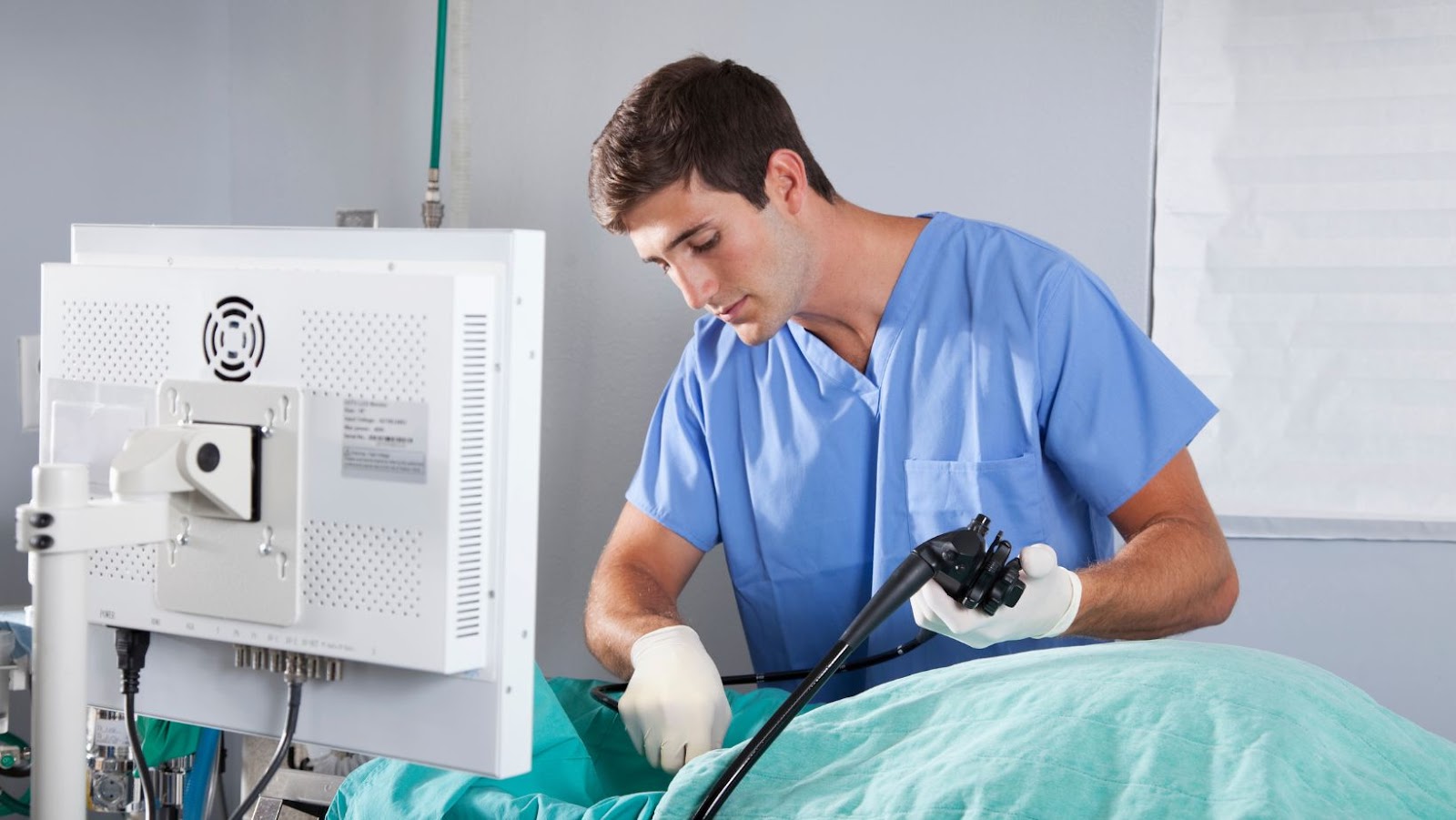 Endoscopy Tech
Endoscopy Tech
The role of an endoscopy tech, essential to healthcare operations, revolves around assisting in endoscopic procedures. Acting as a cog in the diagnostic and treatment process, these professionals set up and sterilize equipment, usher patients through the procedure, and assist physicians in conducting the operation.
Endoscopy techs perform a myriad of tasks that vary based on the healthcare setting. Below are their typical duties:
- Preparing equipment necessary for endoscopic procedures, ensuring all pieces function smoothly. This preparation might include activities like cleaning and sterilizing scopes, setting up video systems, or assembling instruments according to physicians’ preferences.
- Assisting during endoscopic procedures, including reprocessing endoscopes or providing direct support to the examining physician.
- Handling patient care before, during, and after the procedure. This can encompass matters ranging from positioning patients appropriately, explaining the procedure, addressing concerns, or monitoring vital signs throughout the operation.
- Maintaining patient records, which requires them to chart the observation made during the endoscopic procedure accurately.
- Adhering to all safety guidelines in order to prevent infection, demonstrating professionalism and respect for each patient’s safety. This involves executing related protocols rigorously.
Examining this assortment of responsibilities, it’s evident that an endoscopy tech significantly impacts the effective execution of endoscopy procedures, playing an integral role in this advanced diagnostic technique.
 Educational Requirements for an Endoscopy Tech
Educational Requirements for an Endoscopy Tech
Building onto their responsibilities and role in healthcare settings, understanding the educational requirements for endoscopy techs proves crucial. This information not only benefits aspiring professionals but also provides insights for employers and patients about the prerequisites for this critical position.
Obtaining a high school diploma or equivalent stands as the initial educational requirement for an endoscopy tech. Post-secondary education, while not mandatory, often bolsters a candidate’s competitiveness in the job market. These studies typically encompass an Associate Degree or Certificate Program in Endoscopy Technology, Surgical Technology, or a related field.
An endoscopy tech’s training doesn’t end with post-secondary education—certifications play just as vital a role. The primary certification encompasses the Certified Endoscope Reprocessor (CER) credential, administered by the Certification Board for Sterile Processing and Distribution, Inc. (CBSPD). An extensive 24-month sterile processing department experience, or a related degree along with 12 months of experience, are prerequisites for this certification.
Apart from requisite degrees and certificates, endoscopy techs often engage in specialized training programs. These programs enhance their skill set, ensuring proficient usage of endoscopic equipment and adherence to safety procedures. Vital in these trainings are the opportunities to simulate real-world scenarios and gain hands-on experience.
For example, the Society of Gastroenterology Nurses and Associates (SGNA) provides the Infection Prevention Champions Program. Championing best practices in infection prevention and control, this program fits into the continuous learning aspect intrinsic to an endoscopy tech’s role. Participation in programs like such demonstrates an individual’s commitment to maintaining state-of-the-art knowledge and delivering care competently and safely.
Job Opportunities for Endoscopy Tech
The medical field presents an array of opportunities for endoscopy technicians, reflecting the integral role they play in patient diagnosis and treatment. Their expertise caters to several medical institutions, making endoscopy tech a highly sought after specialty in healthcare.
The job market for endoscopy techs is sizable and expanding. Increasing reliance on endoscopic procedures by healthcare institutions fuels this dynamic job market. The US Bureau of Labor Statistics (BLS) reports a 7% growth in the employment of surgical technologists, a category that includes endoscopy techs, from 2019 to 2029. This rate is faster than average, signifying robust demand for these professionals.
Jobs for endoscopy techs span various healthcare settings. Hospitals, being primary healthcare providers, are the major employers, with a significant share of jobs found in outpatient clinics, private practices, and diagnostic labs. These employment domains are consistently expanding, harboring numerous job openings for endoscopy techs.
Additionally, geographical location has a substantial impact on job availability. Highly populated regions or areas with prominent healthcare facilities inherently offer more job opportunities for endoscopy techs.
Prominent employers of endoscopy techs include but are not limited to, large hospitals, outpatient care centers, and private practices. These institutions prioritize patient safety and quality care, therefore, demanding high competence and professionalism from their endoscopy techs.
Employers typically expect endoscopy techs to have a minimum of an associate’s degree or certificate in endoscopy or surgical technology. Besides formal education, certification, such as the Certified Endoscope Reprocessor (CER) credential or training programs like the Infection Prevention Champions Program, is valued highly. Such certifications are indicative of the tech’s expertise and adherence to industry standards and safety procedures.